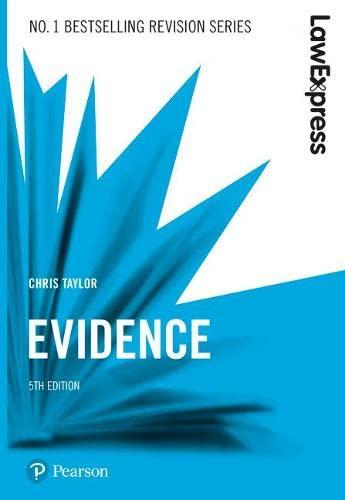Question
Basic, Inc. was a publicly graded company. Combustion Engineering Inc. and Basic began discussions concerning the possibility of a merger of the two companies. During
Basic, Inc. was a publicly graded company. Combustion Engineering Inc. and Basic began
discussions concerning the possibility of a merger of the two companies. During the next two
years, Basic made three public statements, denying that it was engaged in merger
negotiations. In December of the second year, Basic publicly announced its approval of
Combustion's offer for all its outstanding shares. Former owners of Basic stock who sold
their shares after Basic publicly denied that it was engaged in merger negotiations brought a
class action suit against Basic and its directors for having released false or misleading
information in violation of Section 10(b) of the 1934 Act and Rule 10b-5. The plaintiffs
claimed that they were injured by selling their shares at prices that were artificially depressed
as a consequence of Basic's misleading public statements. The defendants claimed that the
plaintiffs had not proven that the plaintiffs had, in fact, relied upon the misleading
statements in selling their stock.
Questions:
(1) What are the arguments that the plaintiffs have satisfied the reliance requirement of
Section 10(b) of the 1934 Act and Rule 10(b)-5?
(2) What are the arguments that the plaintiffs have
not
satisfied the reliance requirement
of Section 10(b) of the 1934 Act and Rule 10(b)-5?
(3) Which side should prevail?
Step by Step Solution
There are 3 Steps involved in it
Step: 1

Get Instant Access to Expert-Tailored Solutions
See step-by-step solutions with expert insights and AI powered tools for academic success
Step: 2

Step: 3

Ace Your Homework with AI
Get the answers you need in no time with our AI-driven, step-by-step assistance
Get Started


